Trinidad & Tobago
Sugar tax plans to target obesity
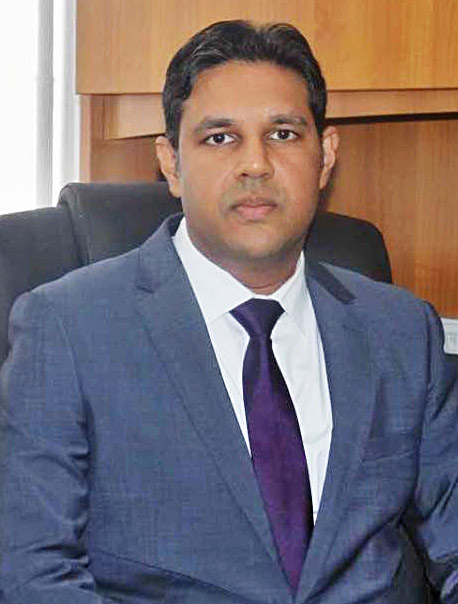
Port-of-Spain – With 51.1 percent of Trinidad and Tobago’s children in the 13-15 age group overweight or obese, the Ministry of Health is considering proposing a sugar tax on all sugar-based beverages.
This was one of the items discussed last week by Joint Select Committee addressing the burgeoning problem. The JSC examined the trends in childhood obesity in the pupil/child population in Trinidad and Tobago and the effectiveness of the School Nutrition Programme and programmes at the Ministry of Health. Addressing the gathering, Chief Medical Officer Dr Roshan Parasram said it is now more expensive to consume healthy foods and drinks, and the sugar tax would reverse this imbalance.
However, he noted the sugar tax would be difficult to implement because Trinidad and Tobago had manufacturers of these products, and like the United Kingdom model, there would have to be a lot of stakeholder consultation before going forward on such a tax.
Committee chairman Independent Senator Paul Richards asked about the main contributing factors to “the alarming statistics”, to which Parasram replied the two driving factors were the decrease in physical activity and the consumption of unhealthy foods.
Permanent secretary in the Ministry of Education Lenor Baptiste Simmons noted pupils were playing on hand-held devices, as opposed to physical play.
Manager of Student Support Services Dennis Conrad said because some of the focus was being put on academics, pupils were “strapped” to their desks and chairs and needed more physical activity in the school.
Addressing the measures to treat the problem, the CMO said the ban on SBBs was fully implemented in schools in September 2017, and the ban on unhealthy snacks was 90 percent complete, with full implementation in schools targeted for September, 2019.
He reported a compliance of 99 percent in primary schools and 97 per cent in secondary schools with respect to soft drinks.
Chief Education Officer John Roopchan said there was a policy on sugary beverages. He added posters were placed in schools to discourage parents and children from consuming these beverages.
Stacy Barron, CEO of National Schools Dietary Services, said in a survey of 5,000 children, there was some wastage for staples such as rice, paratha, and cassava, especially among the younger age group. Vegetable consumption was lowest among all items in all age groups and that included local vegetables.
She said consumption of meals was influenced by age groups, with better consumption patterns among the older children.
There was general satisfaction with the overall taste of most meals provided. However, there was a preference for fast food type menus to be included more frequently, when compared to local traditional healthy meals, she noted.
The expenditure for the School Nutrition Programme for the year 2016-2017 was (TT) $156.7 million, with $10 million going into local agriculture, while in fiscal 2019 the programme's allocation was $200 million, Barron said.
She said 30 percent of the school population – representing 80,956 lunches and 55,114 breakfast meals per day – were provided with school meals.
Committee members were concerned that while Physical Education and sports were part of the curriculum, a policy of compulsory participation was not being implemented.
Roopchan said PE and sports were compulsory, while JSC member Esmond Forde said he did not see children “running around in the school yard” and it appeared as if much of the school sports was reserved for an annual sport day.
Roopchan disagreed, saying that PE and sports were now compulsory in schools, up to form three. He said technology had “isolated children from their peers even when they are in the same space and that had encroached on the time pupils were spending on the playfield”.
However, he said the ministry had revived inter-school sports and other programmes to encourage physical activity. He said PE was now a formal subject and pupils could be assessed at it at the CXC level and, within the last year or two, at the advanced level. However, Roopchan said, it was difficult to have PE as a compulsory subject at the upper school level because of the limited contact time available at this level.
Sandals’ pullout
Dr Auliana Poon, Managing Director of Tourism Intelligence International, a leading international consultancy that has been operating for more than 25 years, said Tobago’s tourism stakeholders must let the world know “the island is open for business, but perhaps not open to Sandals business and not in that format”.
Tourism Intelligence International recently beat more than 20 competitors to land the contract to develop Dominica’s National Tourism Policy and Tourism Master Plan. The company contributed to the development of more than 100 destinations, including Abu Dhabi, Antigua and Barbuda, Australia, the Bahamas, Barbados, Benin, Denmark, Finland, Germany, Greece and Hong Kong.
“When Sandals talks about the negative press for some people it’s negative press, but the independent traveller is happy that an independent destination is concerned about its environment . . . (and) wants to have transparency,” Poon said.
She said such travellers “would love to come to a country where people have a voice and have a say. So I say it’s extremely positive depending on how you look at it”.
Poon runs Villa Being, a high-end tourism resort in Tobago. She said of the 1.5 billion travellers globally, only two percent travel to the Caribbean. If the destination could attract 100,000 of the 1.5 billion people who are more conscious and educated, those travellers would be interested that Tobago is concerned about the environment, she said.
She also said Tobago might not have been ready for a project of the magnitude proposed by the government and Sandals.
“We need to rethink the strategy of just building the stuff and letting somebody else come to manage it. The real money is in the management. Do we have the management capabilities to run it?” Poon asked.
She suggested that the Caribbean send students to the top universities in Switzerland to study hotel management so that they can return to manage the islands’ resources.
According to Poon, Sandals might not have been what Tobago needed at this point.
“Club Med invented this holiday where people descended on this village for sun, sand, sea and sex and what have you, but where is Club Med today? Club Med had its day,” she said.
“The point I’m making is Sandals had 30 to 40 years of fantastic growth and development. I’m asking is this the end of the life cycle we jumping on to? Is it that Tobago is now trying to perfect the production of typewriters when everybody wants a computer? Is this the end of the line? Is this only thing? What is coming after that?”
While Poon saw positives, Tobago businessman Demi John Cruikshank was upset about the Sandals’ pullout. Cruik-shank is former head of the Tobago Division of the Trinidad and Chamber.
He told a small group at a town meeting last week it was a sad day when the announcement was made that Sandals was leaving. He said the departure of the resort operator was a severe blow to the island’s business community.
Cruickshank said Sandals benefits the islands states where it operates by way of taxes, employment, and increased visitor arrivals. He gave the example of the Bahamas having 30,000 international arrivals last Christmas Day, while Tobago only got 18,000 international arrivals for all of 2018.
He said farmers would have benefited and they were getting ready to supply the resort with locally-grown produce.
“There was one guy in Pembroke who just mortgaged his house for (TT) $5 million and was going into an egg processing business and putting up a massive egg-plant operation in Pembroke. That squashed, 5,000 jobs gone, so we understand what we lost,” he said.
Cruickshank also said Tobagonians lost out from earning high incomes. He said a butler at the resort earns approximately (US) $5,000 a month plus $1,000 to $2,000 a month in tips.
“If a butler salary is $7500 a month, he working for more money than the Chief Secretary of the THA. So we sit down with foolishness in Tobago and sit down and let some people who call themselves leaders in Tobago encourage some people who say they are environmentalists in Tobago, and did not even pick up the phone and call Sandals and say tell me your track record as to what’s happening with the environment and your environmental policies,” he said.
Cruickshank appealed to Tobagonians not be sidetracked by a handful of people. He noted: “We as right-thinking Tobagonians have to get up and say those people are minorities and they talking foolishness and they do not support or carry the majority of Tobagonians or Tobagonian voices.”
He said another hotel brand was interested in setting shop in Tobago, but was waiting for Sandals. However, this might not happen again because of the negative investor climate.
Govt loses Sandals foothold
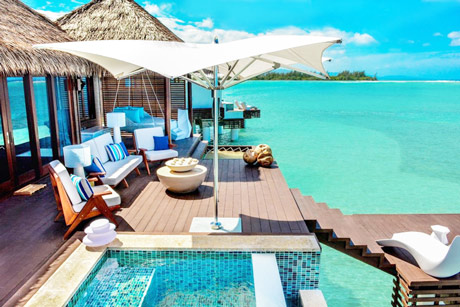
Following Rowley’s ‘Conversation with the Media’ last Thursday over how it lost the Sandals’ foothold in Tobago, Persad-Bissessar said the country is no clearer as to its future. In a release following Rowley’s three-hour talk with the media following the Sandals debacle, headed ‘Rowley should stop blaming and start working: still no accountability to the people or a plan for our country's future’, Persad-Bissessar also accused the Prime Minister of bullying the media. She also urged him to call a general election.
In the release, Persad-Bissessar said Rowley offered no clarity as to why Sandals Resorts International pulled out of talks to build a resort in Tobago, and what were next steps for the island.
Said Persad-Bissessar: “We are no clearer on Tobago development; no clearer on a plan for diversification; no clearer on a growth strategy; no clearer on where we are headed as a country in Trinidad and Tobago.”
Additionally, “'Perhaps the thing that worries most of us after seeing Dr Rowley's show is his competence to govern. It is a cause for serious concern.”
Persad-Bissessar summed up Rowley’s three-hour talk as “another lost opportunity to present new and innovative strategies to move our economy forward”, noting he “quickly descended into a convoluted diatribe in which he resorted to his all too familiar theme of ‘blame everyone except me’”.
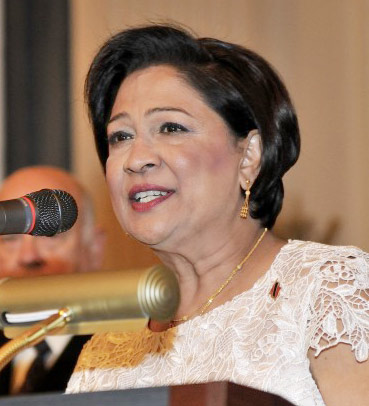
She accused Rowley of bullying the media for probing his “failure” on the Sandals deal, and said he is yet to offer an explanation for the improper selection process, the feasibility for a project of that scope and scale, or even a projection of return on the billions of taxpayers’ dollars that would have been spent.
“What upsets the Prime Minister is that at every turn, the media, the Opposition and members of the public refuse to just jump blindly behind anything he wants to do and support him without question, calling legitimate questions ‘analysis paralysis’,” Persad-Bissessar said.
Rowley lumps all critics together as “opposition”, Persad-Bissessar noted, and for him, any “opposition cannot be tolerated”.
Said Persad-Bissessar: “What we are witnessing is a Prime Minister in meltdown as he comes to terms with the fact that he has failed to lead the country. Keith Rowley and his government are incapable of moving our country forward, and we call on the Prime Minister to do the right thing and call the election now and give people the chance to return good governance to get Trinidad and Tobago working again.”
Persad-Bissessar’s statements came in the wake of Rowley accepting some of the responsibility for the pullout, saying if the process were to take place again during his watch, he would “spend more time trying to ensure that the cynics don’t control the airwaves”.
Rowley also indicated there was no possibility of Sandals returning to the table – not with the level of cynicism that was displayed, and which was accompanied with political agendas and motives. He remained definitive in the finality of the exit, saying of Sandals: “They have pulled up their stakes and they have gone.”
Recalling the history of the Sandals venture, Rowley said the Magdelena Grand Beach and Golf Resort does not have a brand. When Sandals offered to establish a resort in Tobago, his administration became quite excited. Now that Sandals is no longer in the picture, it could hamper Tobago’s development, he said.
Asked if his government was willing to accept some responsibility after taking a year and three months to negotiate a non-binding Memorandum of Understanding with Sandals, Rowley insisted this did not take months to finalise. Instead, there was a delay due to last year’s hurricane which destroyed some of the hotel’s projects.
He said the government had been pushing for the Sandals Hotel and Beaches Hotel at Buccoo Estate, which would have comprised between 750 to 1,000 rooms, to create an international brand.
“So if it has not come to fruition, we have to take some responsibility because we did not set out to fail. We were not giving Sandals anything,” he said.
Rowley said with Sandals now out of the picture, Tobago will no longer be super attractive for investors. However, his administration will keep on doing what has to be done, hoping to achieve the results they are looking for. He admitted that he was disappointed when he heard the news, while others were excited.
He also agreed that the population did not buy into the project, and that government’s communications was sometimes seen as propaganda.
Said Rowley: “Clearly, if the government had done enough there wouldn’t be anybody saying that there is a negative on this project. But clearly, you have people saying that. There is always room to try and convince other people.”
However, he assured all is not lost, and other opportunities will be sought for Tobago’s tourism thrust: “This is not going to set us back,” he said.
Rowley also claimed the media had been fed wrong information on Sandals from different sources, including the Opposition. Sandals was faced with bad press even before anything was done in Tobago, he claimed.
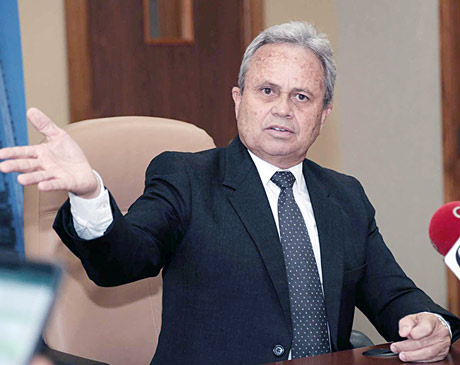
An upbeat Imbert said the government had projected to receive (TT) $10 billion in the first quarter of the 2019 fiscal year, from October 1, 2018, to December 31, 2018. He said the actual total revenue for the period was $11.3 billion.
Imbert said: “What has helped us is the increase in the price of natural gas. The price of oil has gone down, but the price of natural gas has gone up and a significant portion of the revenue that we get as a country comes from natural gas. As oil prices collapsed from (US) $70 to $45 a barrel, the price of natural gas shot up to as high as $4 per unit. Our budget is based on $2.75 per unit.”
Imbert complimented the public servants in the budget division for the accuracy of their revenue projections, citing as an example that the estimate income tax revenue in the first quarter was (TT) $4.8 billion and the actual revenue received was $4.9 billion.
Imbert also admitted that the government had been operating “close to its overdraft limit,” with the Central Bank since the administration was elected in September 2015. Responding to a question on the reason behind the government having to go to Parliament for an appropriation to pay the interest on the overdraft, Imbert said that decision was based on initial estimates of cashflow that were not borne out as a result of unexpected demands and delayed receipts.
He said, for example, the government had expected the income from the sale of the National Investment Fund bonds to come into the Treasury in July, but the funds were actually received in September.
“During that period when we did not have the income from NIF, we had to use temporary advances from the Central Bank,” said Imbert.
Responding to a question on whether the Government's overdraft with the Central Bank had been maxed out recently, Imbert said: “The overdraft has been at the maximum from since we came in. It's an up and down situation as sometimes the overdraft hits 98 percent and sometimes we get it down to as low as 60 percent, which happened when the NIF funds came in. But then you have expenses coming at you all the time. So we have been running close to the overdraft limit since we came into Government.”
He disclosed the overdraft limit has been increased to 20 percent of revenue and that the interest on the overdraft is the repo rate, which is now five percent.
scholarship winners
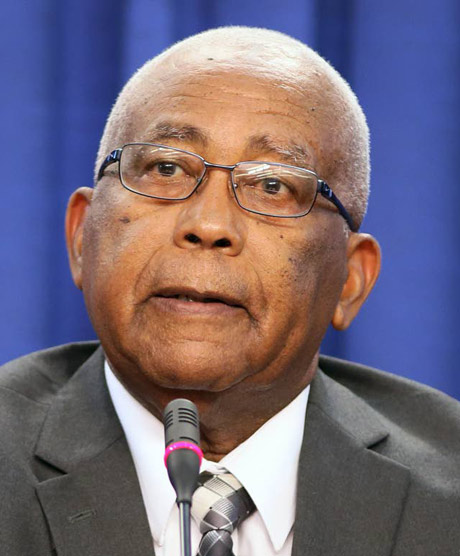
The students claim being told to give up scholarships and instead join the Government Assistance for Tuition Expenses Programme. On November 23, the parent of one of the affected students wrote to Education Minister Anthony Garcia asking him to reconsider the decision to not pay the full tuition for additional scholars studying at the University of West Indies in Mona, Jamaica.
According to the letter, the student earned an additional scholarship based on her performance in the 2018 CAPE examinations and applied to the medical schools at Mt Hope and Mona.
“Every year many students are left heartbroken and dejected by this apparent arbitrariness in the selection process. She did not want to be so oppressed so she applied to Jamaica as a safeguard knowing that she would at least benefit from GATE or possibly a national scholarship,” the parent wrote.
Said the parent: “The decision not to pay the full fees for additional scholars studying in Jamaica has given rise to a serious anomaly. She will now be receiving significantly less for tuition as a scholar than when she was receiving GATE.”
Additionally, “This anomaly erodes the benefits that should proceed from gaining a scholarship. In fact, it will lead to serious financial discomfort for my daughter while she pursues her studies. It is as though she is receiving punishment rather than benefits for being a national scholar. Indeed, there are students who did not receive a national scholarship, and have gained acceptance to Mt Hope Medical School, while she did not.”
Another parent appealed to Garcia for assistance to pay (TT) $130,000 in tuition fees per academic year plus approximately $37,000 for living accommodation and $30,000 for school supplies and personal expenses.
“Up to last year, they paid the full fees, but now it’s like they are trying to rob these students of the scholarships by forcing them to take GATE, which can be stopped. Applying to all the campuses was an option all students have but Cabinet trying to take that option from additional scholars, and we would like to know why,” said the parent of another affected student.
A notice issued by the Ministry of Education’s Scholarships and Advanced Training Division stated that with effect from September, 2018, recipients of Additional Nationals Scholarships studying at the Mona or Cave Hill campuses of UWI will be paid full tuition and compulsory fees if they provide evidence they applied to the St Augustine Campus and did not gain admission.
